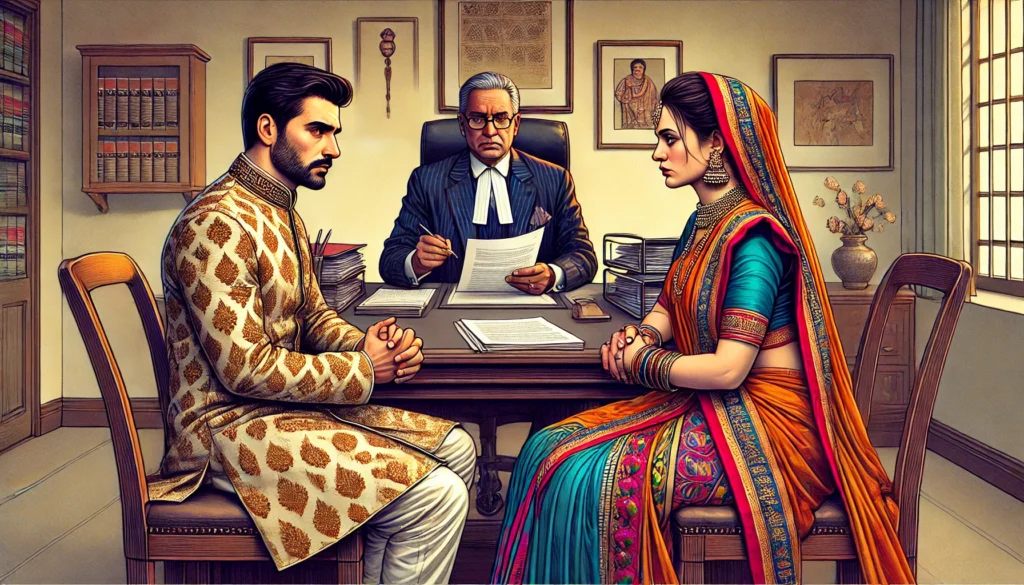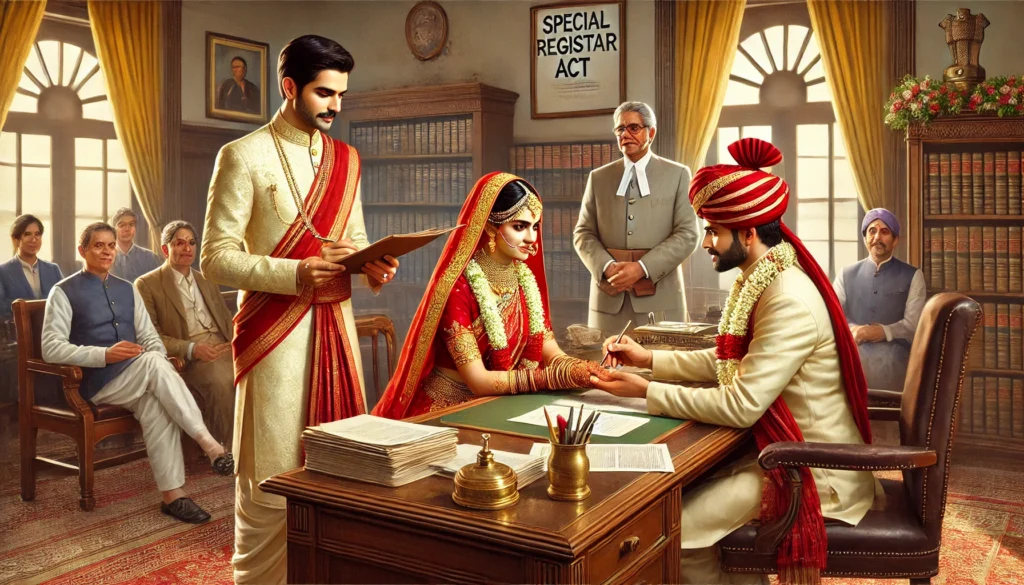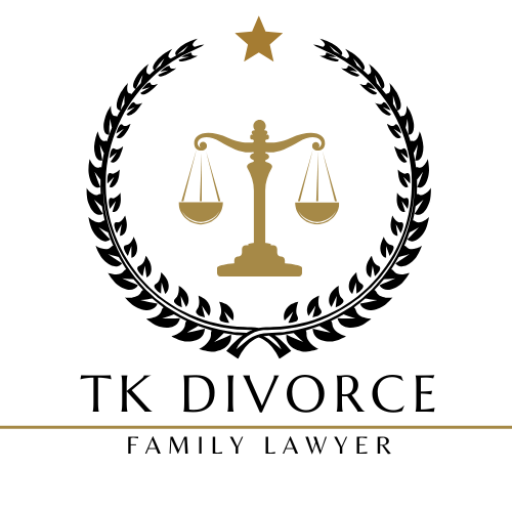#1 Best Court Marriage Lawyer in Patna

Looking for the court marriage in Patna? Mr. Khurshid Alam Best Court Marriage lawyer in Patna
Court Marriage in Patna
In India, court marriage is a legal way for individuals to marry, irrespective of their religion, caste, or social background. The process of court marriage provides a streamlined, legal approach to wedlock, ensuring that the marriage is recognized by the law. This type of marriage is conducted under a secular framework and follows the procedures outlined in the Special Marriage Act, 1954.
In the context of Indian jurisdiction, the Indian Constitution provides fundamental rights and guidelines that are foundational for laws related to divorce, which are further clarified and regulated under various statutory laws. The provisions and acts governing divorce in India ensure that individuals have legal recourse to dissolve their marriage under different circumstances, while also protecting their rights.
What is Court Marriage?
Court marriage is a formal process where two individuals can marry without any religious rituals or customs. The marriage is solemnized by a Marriage Officer under the provisions of the Special Marriage Act, 1954. It is an official, legally recognized way to register a marriage, and it provides full legal validity to the union.
Court marriage holds significant value in contemporary India for several reasons:
Why is Court Marriage Important?
- Secular Nature: It is not governed by personal or religious laws, making it applicable to all individuals, regardless of religion.
- Legal Recognition: The marriage is officially registered with the government, providing legal rights and protection to both parties, including inheritance, alimony, and custody of children in case of separation.
- Autonomy and Freedom: Court marriage ensures individuals have the freedom to choose their partners without the interference of caste, religion, or family pressure.
- Protection against Child Marriage: The law mandates minimum legal age for marriage (21 years for men and 18 years for women), preventing child marriages.
Comprehension of Court Marriage under Indian Constitution & Statutes
Although the Indian Constitution does not explicitly mention court marriage, several provisions and statutes relate to it, providing the necessary legal framework for such unions.
Right to Equality (Article 14)
- Court marriage is based on the principle of equality, where the law treats all individuals equally, irrespective of their caste, religion, or gender.
Right to Freedom (Article 19)
- Individuals have the freedom to marry the person of their choice under the law. Court marriage ensures that this fundamental right is protected without any undue societal pressure or discrimination.
Right to Life and Personal Liberty (Article 21)
- The freedom to live with dignity, which includes the right to choose a spouse, is a part of the fundamental rights enshrined in the Constitution.
Statutes Governing Court Marriage
The primary legal statute that governs court marriage in India is the Special Marriage Act, 1954, though there are other personal laws that also provide for registration of marriages (e.g., Hindu Marriage Act, 1955)
The Special Marriage Act, 1954 is a secular law in India that provides for the marriage and registration of marriages between two individuals, regardless of their religion, caste, or ethnicity. It was enacted to facilitate civil marriages, offering an alternative to religious-based marriage laws. Under this Act, individuals can marry without the need for religious ceremonies, and the marriage is solemnized and registered by a Marriage Officer.
The Hindu Marriage Act, 1955 is a legislation in India that governs marriage and divorce among Hindus, Buddhists, Jains, and Sikhs. It provides for the legal recognition of marriages, outlining conditions such as minimum age for marriage, consent, and monogamy. The Act also specifies grounds for divorce, including adultery, cruelty, desertion, and mental illness, and addresses issues like maintenance, alimony, and child custody.
Types of Court Marriage in India
There are primarily two types of court marriages that can be conducted under the Special Marriage Act, 1954:
Court Marriage under the Special Marriage Act (1954)
- This is the most common and widely recognized type of court marriage. It is available for all Indian citizens, irrespective of their religion, and is often chosen by couples who wish to marry outside of their religious or cultural practices. The process involves:
- Notice of Intended Marriage: Both parties must submit a notice to the Marriage Registrar stating their intent to marry.
- Waiting Period: The law requires a 30-day waiting period from the date of the notice. During this period, objections to the marriage can be raised.
- Marriage Certificate: After the waiting period, if no objections are raised, the couple can marry in the presence of the Marriage Officer and witnesses. A marriage certificate is issued once the ceremony is completed.
Court Marriage under Personal Laws (Hindu Marriage Act, 1955)
- While the Hindu Marriage Act traditionally requires religious rites, couples wishing to marry under this act can also choose to register their marriage in court. This is often preferred for couples who are Hindus and wish to keep the process simpler and formal.

Landmark Judgments on Court Marriage in India
Several landmark judgments by the Indian judiciary have impacted the way court marriages are viewed and conducted in India. These judgments have provided clarity on issues related to consent, legal age, and marriage registration.
Lata Singh v. State of U.P. (2006) – Freedom of Choice in Marriage
- Key Issue: Whether an adult has the right to marry a person of their choice, irrespective of caste or religion.
- Judgment: The Supreme Court of India upheld the right of individuals to marry anyone of their choice, regardless of caste or religion, and held that parents cannot interfere with a person’s decision to marry. The court specifically emphasized that young adults have the freedom to choose their spouses, and such marriages should be recognized.
- Impact: This judgment affirmed the principle of personal autonomy and choice in marriage, reinforcing the importance of court marriage in situations where individuals face social or familial pressure.
2. Shakti Vahini v. Union of India (2018) – Protection of Inter-Caste Marriages
- Key Issue: Protection of inter-caste and inter-religious couples from harassment or threats.
- Judgment: The Supreme Court ruled that inter-caste and inter-religious marriages are legitimate and that couples should be protected from any kind of violence or threat from their families or society. The court directed the police to provide necessary protection to such couples.
- Impact: This judgment provided greater protection to couples marrying under the Special Marriage Act, particularly in cases of inter-caste or inter-religious unions, where social pressure often leads to violence.
3. K.S. Puttaswamy v. Union of India (2017) – Right to Privacy and Marriage
- Key Issue: Whether the right to marry is a fundamental right under the Constitution of India.
- Judgment: The Supreme Court held that the right to privacy is a fundamental right and includes the right to make personal choices, including the right to marry. The judgment solidified the concept that personal autonomy, including choosing a spouse, is protected under the Constitution.
- Impact: This judgment underscored the importance of personal freedom in marriage, particularly in the context of court marriages, which provide legal validation to consensual unions.
4. Indira Sarma v. V.K.V. Sarma (2013) – Conditions for Marriage
- Key Issue: The conditions under which a marriage can be solemnized, including the requirement for consent and the age of marriage.
- Judgment: The Supreme Court clarified the legal age for marriage (18 years for women and 21 years for men) and emphasized the necessity of free and informed consent for a valid marriage. The court also ruled that any marriage involving minors or forced marriages would be void.
- Impact: This ruling strengthened the legal framework for valid marriages, emphasizing the importance of consent and age, and indirectly supporting the process of court marriage, where such requirements are strictly observed.
5. Mohd. Ahmed Khan v. Shah Bano Begum (1985) – Marriage and Maintenance Rights
- Key Issue: Whether a divorced woman is entitled to maintenance under Section 125 of the CrPC.
- Judgment: Though not directly related to court marriage, this landmark case (often cited in divorce cases) emphasized the rights of women in marriage and divorce, including the right to maintenance. It had a lasting impact on marriage-related legislation, especially in recognizing that legal marriages under any law, including court marriages, confer certain rights.
- Impact: It highlighted the need for legal recognition of marriages, such as court marriages, where women are entitled to their legal rights upon marriage dissolution.
Why Choose TK Divorce & Family Lawyer for Court Marriage?

Court marriage is a legal process that provides a safe, efficient, and lawful way for couples to marry, without the involvement of religious rituals or customs. Whether you’re choosing a court marriage for convenience, legal validity, or personal reasons, TK Divorce & Family Lawyer is your trusted partner in ensuring that the entire process is smooth, hassle-free, and legally binding. Here’s why you should choose us for your court marriage:
Expertise in Court Marriage Procedures
At TK Divorce & Family Lawyer, we specialize in handling court marriages under the Special Marriage Act, 1954, which is the most common legal framework for such marriages in India. Our legal experts have an in-depth understanding of all the steps involved, from the initial application to the final marriage registration. We guide you every step of the way, ensuring compliance with the law and protecting your rights.
2. Hassle-Free and Quick Process
Court marriage can be a complex process if not handled correctly. With our years of experience, we ensure that the entire process is completed efficiently and quickly. From filing the Notice of Intended Marriage to obtaining the marriage certificate, we take care of all legal formalities, reducing your stress and saving your time.
3. Confidentiality and Privacy
We understand the sensitive nature of court marriages, especially in cases of interfaith, intercaste, or love marriages. We prioritize your confidentiality and privacy throughout the process. At TK Divorce & Family Lawyer, we ensure that your personal details are protected and that the entire process is discreet and secure.
4. Legal Validity and Protection
A court marriage is legally recognized by the Indian government. After a marriage is solemnized, we assist you in obtaining the marriage certificate, which is crucial for various legal purposes like property rights, visa applications, and other legal proceedings. Our legal team ensures that your marriage is properly registered and that you receive all the necessary documentation without any delays.
5. Expert Guidance for Interfaith & Intercaste Marriages
Court marriages are an ideal choice for couples from different religions or castes. If you’re considering an interfaith or intercaste marriage, we provide expert guidance on how to navigate the legal requirements and societal challenges. Our team has successfully assisted many couples in ensuring that their marriage is legally protected and recognized, irrespective of their background.
6. Transparent and Affordable Legal Fees
At TK Divorce & Family Lawyer, we believe in offering transparent, reasonable, and upfront legal fees. We offer affordable pricing for court marriage services with no hidden charges, ensuring that you know exactly what to expect. Our aim is to provide high-quality legal services at a price you can afford.
7. Compassionate and Supportive Service
We understand that court marriages often come with emotional and social complexities, and we offer a compassionate and supportive environment for you and your partner. Whether you’re facing pressure from family or simply need legal advice, our lawyers are here to provide emotional and legal support throughout the process.
8. One-Stop Solution for Court Marriage Needs
At TK Divorce & Family Lawyer, we handle everything related to your court marriage:
- Preparation and filing of the Notice of Intended Marriage
- Obtaining required documents (ID proofs, photographs, etc.)
- Submission to the Marriage Officer
- Coordinating the appointment with the Marriage Officer
- Witness arrangements
- Final registration and obtaining the marriage certificate
We make sure that you don’t have to worry about anything; we take care of all the legal work so that you can focus on celebrating your new life together.
9. Free Initial Consultation
We offer a free initial consultation to discuss your situation, explain the court marriage process, and answer any questions you may have. This consultation helps you understand the entire process and how we can assist you in getting legally married without any hassle.
10. Experienced Lawyers with a High Success Rate
Our team consists of experienced lawyers who specialize in court marriages and family law matters. With a proven track record of success, we’ve helped many couples marry with legal certainty and ease. Whether it’s a first marriage or you’re looking to remarry, we ensure that your court marriage process goes smoothly and without any legal complications.
The Process of Court Marriage with TK Divorce & Family Lawyer
- Notice of Intended Marriage:
Both parties must submit a notice of their intention to marry to the Marriage Officer in the district where at least one of the parties has lived for 30 days. - Verification of Documents:
The parties must present necessary documents, such as proof of identity (e.g., passport, Aadhaar, voter ID), proof of age (birth certificate or school certificate), and photographs. - Marriage Registration:
After a 30-day waiting period, if no objections are raised, the marriage is solemnized in the presence of the Marriage Officer and two witnesses. - Marriage Certificate:
Once the marriage is solemnized, the Marriage Officer issues a marriage certificate, legally validating your union.
The Process of Court Marriage with TK Divorce & Family Lawyer
- Notice of Intended Marriage:
Both parties must submit a notice of their intention to marry to the Marriage Officer in the district where at least one of the parties has lived for 30 days. - Verification of Documents:
The parties must present necessary documents, such as proof of identity (e.g., passport, Aadhaar, voter ID), proof of age (birth certificate or school certificate), and photographs. - Marriage Registration:
After a 30-day waiting period, if no objections are raised, the marriage is solemnized in the presence of the Marriage Officer and two witnesses. - Marriage Certificate:
Once the marriage is solemnized, the Marriage Officer issues a marriage certificate, legally validating your union.

Services Provide By Us
Alimony and Maintenance in Patna
Contact best divorce lawyer Patna
Court Marriage in Patna
Divorce Advocate in Patna
Divorce Under Muslim Personal Law
Dowry and Domestic Violence
Inter Religion Marriage in Patna
Inter-Caste Court Marriage In Patna
Connect With Our Social media
Advocate Tabish Anmad
https://www.linkedin.com/in/advocate-tabish-ahmad-667015326
Our Legal Networks
Best Tax Law Firms in Bihar
List of all Honoble High Courts
Search Your Case
About Us
Our Presence On Social Media
What is court marriage, and how is it different from traditional marriage?
Court marriage is a legal union solemnized under the Special Marriage Act, 1954, without religious ceremonies, ensuring equality and legality.
Who can apply for court marriage in Patna?
Any couple of legal marriageable age, irrespective of caste, religion, or nationality, can apply under the Special Marriage Act.
What is the minimum age requirement for court marriage?
The minimum age is 21 for males and 18 for females.
Can interfaith couples opt for court marriage in Patna?
Yes, interfaith couples can legally marry under the Special Marriage Act, 1954.
Is court marriage recognized across India?
Yes, court marriage is recognized throughout India as a legal form of marriage.
What documents are needed for court marriage in Patna?
Essential documents include:Age proof (birth certificate, school leaving certificate)
Address proof (Aadhaar card, passport, voter ID)
Passport-sized photographs
Affidavit declaring marital status
Notice of intended marriage.
Do witnesses need to be present for court marriage in Patna?
Yes, three witnesses are required during the solemnization of the marriage.
Do we need a No Objection Certificate (NOC) for court marriage?
NOC is not mandatory for Indian citizens but may be required for foreign nationals.
Are there specific legal provisions for NRI court marriages in Patna?
Yes, NRIs can marry under the Special Marriage Act, provided one party has a valid Indian address.
Do both partners need to be present for the court marriage process?
Yes, both partners must be physically present during the solemnization and registration of the marriage.
What is the procedure for court marriage in Patna?
The process includes:Filing a notice of intended marriage.
A 30-day notice period for objections.
Solemnization and registration before the Marriage Officer.
How long does the court marriage process take?
The process typically takes 30-60 days, depending on objections and document verification.
Can court marriage be completed in one day?
No, the law mandates a 30-day notice period after filing the notice of intended marriage.
What happens if there is an objection to the marriage?
The Marriage Officer investigates the objection, and if valid, the marriage may be delayed or denied.
Is pre-marriage counseling required for court marriage in Patna?
No, pre-marriage counseling is not legally required.
What is the cost of court marriage in Patna?
The cost includes: Government registration fees (approximately ₹500–₹1000).
Legal assistance fees (varies by lawyer or firm).
Are there additional costs for NRI or interfaith court marriages?
Yes, costs may increase due to additional documentation and legal verifications.
Do lawyers charge separately for court marriage in Patna?
Yes, lawyers typically charge a separate fee for legal consultation and handling documentation.
Can court marriage be done without parental consent?
Yes, parental consent is not required if both parties meet the legal age criteria.
What if one partner is divorced?
A divorced individual must provide a divorce decree as proof of their single status.
Can a foreign national marry an Indian citizen through court marriage?
Yes, foreign nationals can marry Indians under the Special Marriage Act, but additional documentation like a valid visa and NOC may be required.
Is court marriage possible if one partner is underage?
No, both partners must meet the minimum age requirement for marriage.
Can same-sex couples apply for court marriage in Patna?
As of now, Indian laws do not recognize same-sex marriages.
Do we get a marriage certificate immediately after court marriage?
Yes, the marriage certificate is issued on the same day as the solemnization of the marriage.
Can we change our name after court marriage?
Yes, name changes after marriage can be done through a gazette notification and updating official documents.

